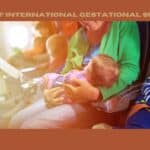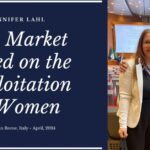 From our new CBC student intern, Scott Auslund:
From our new CBC student intern, Scott Auslund:
As a 21st century society, we are being forced to grapple with the ethical questions surrounding some of the leading scientific discoveries in human history, particularly in the area of genetic research. The current wave in favor of human embryonic stem cell research, and the technological advances responsible for its progress, has forced us as the human community to think hard about what it means to be human.
Peter Singer, Princeton University professor and director of bioethics for that institution, has been at the forefront of these ethical debates. On his website he claims that speciesism (valuing human life greater than animals) is wrong, and that humans and animals with the same cognitive abilities should be treated the same in the testing laboratory. Professor Singer says, in his book Animal Liberation , “I propose asking experimenters who use animals if they would be prepared to carry out their experiments on human beings at a similar mental level — say, those born with irreversible brain damage.” What Singer espouses is theoretical; essentially, if you are going to test a developing drug therapy on a chimp, why not test it on a human who is of the same mental capacity? According to Singer, to make a distinction between a human and an ape, if they are of the same mental capacity, is wrong. full article here
Author Profile

- Jennifer Lahl, MA, BSN, RN, is founder and president of The Center for Bioethics and Culture Network. Lahl couples her 25 years of experience as a pediatric critical care nurse, a hospital administrator, and a senior-level nursing manager with a deep passion to speak for those who have no voice. Lahl’s writings have appeared in various publications including Cambridge University Press, the San Francisco Chronicle, the Dallas Morning News, and the American Journal of Bioethics. As a field expert, she is routinely interviewed on radio and television including ABC, CBS, PBS, and NPR. She is also called upon to speak alongside lawmakers and members of the scientific community, even being invited to speak to members of the European Parliament in Brussels to address issues of egg trafficking; she has three times addressed the United Nations during the Commission on the Status of Women on egg and womb trafficking.
Latest entries
 infertilityApril 23, 2024The Rise of International Gestational Surrogacy in the U.S.
infertilityApril 23, 2024The Rise of International Gestational Surrogacy in the U.S. Assisted Reproductive TechnologyApril 16, 2024Founder Jennifer Lahl’s Speech on Surrogacy to the Casablanca Declaration
Assisted Reproductive TechnologyApril 16, 2024Founder Jennifer Lahl’s Speech on Surrogacy to the Casablanca Declaration #BigFertilityFebruary 27, 2024No, Alabama Didn’t Ban IVF
#BigFertilityFebruary 27, 2024No, Alabama Didn’t Ban IVF ArticleSeptember 25, 2023The Little Engine That Could
ArticleSeptember 25, 2023The Little Engine That Could

